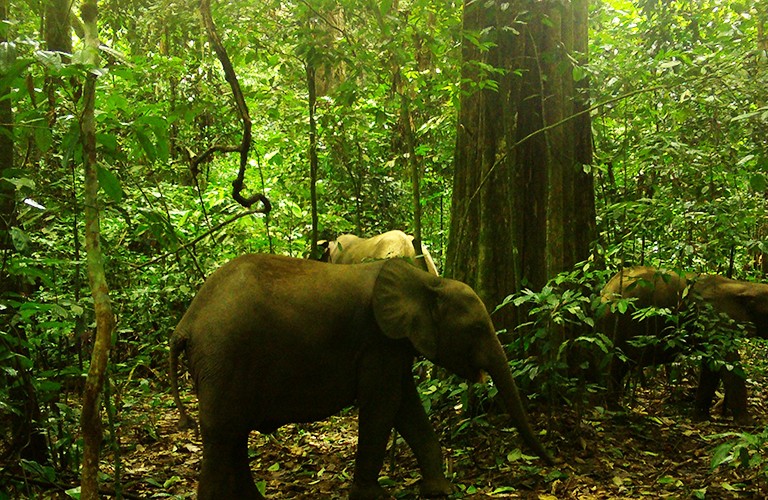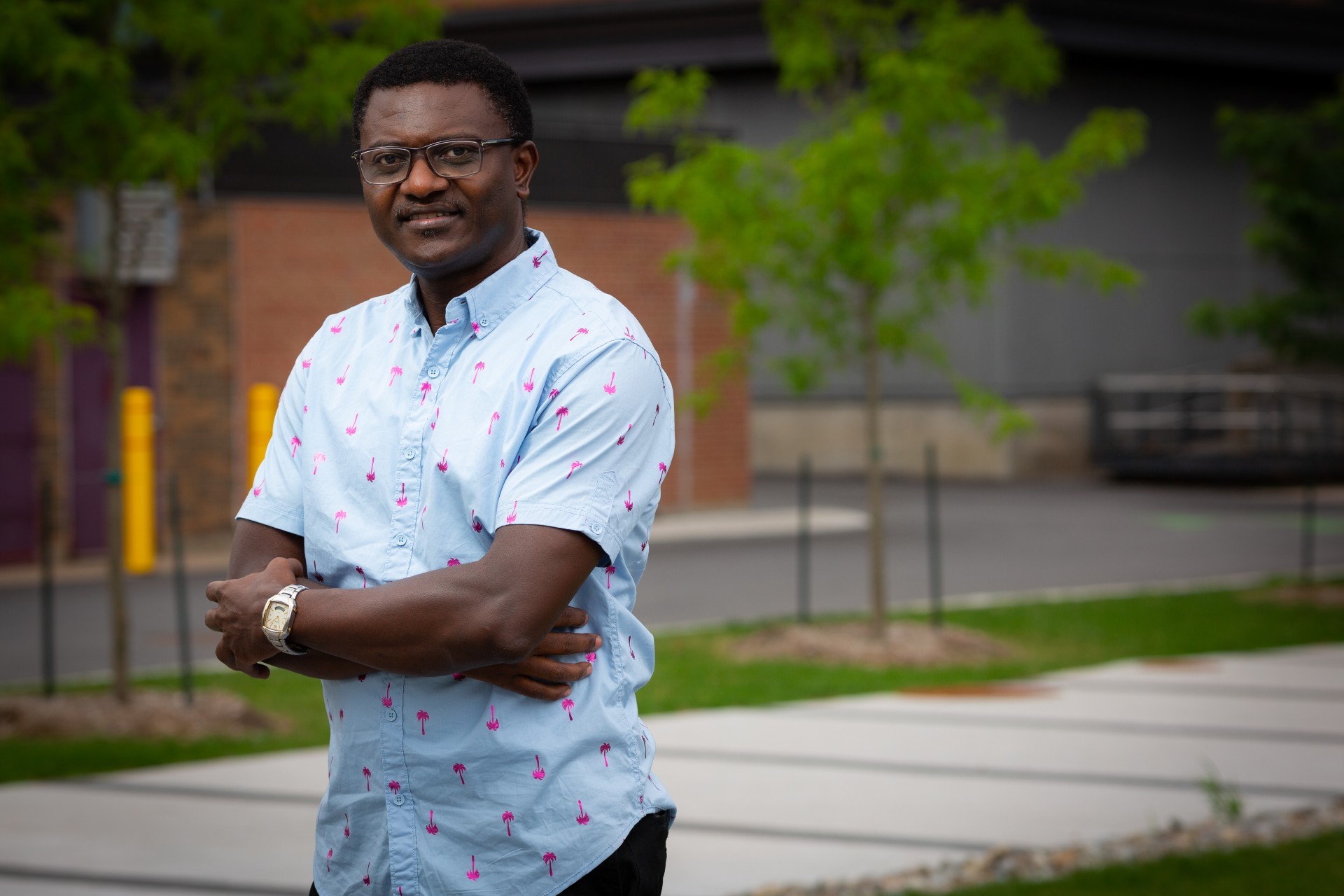Concordia biology prof signs a new memorandum of understanding with the Granby Zoo

Robert Weladji is thrilled to be renewing his longstanding partnership with the Granby Zoo in Granby, Quebec, which he believes will help him take his fieldwork with endangered species to the next level.
“It’s exciting,” says Weladji, professor of biology in Concordia’s Faculty of Arts and Science. “This will open up my research and allow us to be very active in the field.”
Weladji has just signed a new memorandum of understanding that will span five years, providing $30,000 of funding per year for his work in the tropics. The zoo is contributing $25,000 and the remaining $5,000 is being matched by the Office of the Vice-President of Research and Graduate Studies (OVPRGS) and the Faculty of Arts and Science.
The funding will allow him to realize his long-cherished goal of opening a field research base in Cameroon, where his students have been working with endangered species — notably African elephants and gorillas — at the Campo-Ma’an National Park.
 Robert Weladji: “We are training the conservationists of the future.”
Robert Weladji: “We are training the conservationists of the future.”
‘We will welcome colleagues’
The research station will not just be open to members of Concordia’s Department of Biology but also researchers from other university departments, including Geography, Planning and Environment and Sociology and Anthropology, and elsewhere
“We will welcome colleagues who want to start any ecological or conservation-related research at the site on any species,” Weladji says. He notes the forest elephants he studies are now listed as “critically endangered” on the International Union for Conservation of Nature Red List — an extreme classification.
“It’s time to use research to protect them. How can we understand the species better? What can we do to preserve them?” Weladji asks.
“What can we do to make sure they don’t go extinct? What can we do to promote their coexistence with humans and to improve people’s attitude toward wildlife?”
Studying the animals themselves is only one part of Weladji’s work; human sensitization is another big piece of the puzzle. These animals are threatened by humans on various levels, from poachers to frustrated farmers who might be driven to kill animals trampling their lands.
‘The learning you get on the ground is irreplaceable’
The research centre is part of a longer-term goal.
“My dream is once the infrastructure is up running, we could develop a tropical field course,” Weladji says. “Every year or every other year, a group of five to 10 students dedicated to biodiversity conservation could go down there and do some behaviour observation, learn how to set up experiments, how to collect field-based ecological data and how to identify species.”
He sees it as a win-win scenario — for the animals his team is working to protect and the students who will be studying them.
“We are training the conservationists of the future. And the world badly needs them for a sustainable future,” Weladji says. “It’s a magnificent experience for the students to have. The learning you get on the ground is irreplaceable.”
Find out more about Concordia’s Department of Biology.


